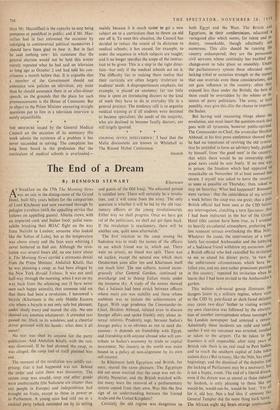THE BROCHURE issued by the General Medical Council on the
occasion of its centenary this week admits the existence of a problem it has never succeeded in solving. The complaint has long been heard in the profession that the curriculum of medical schools is overloaded— verloaded- mainly because it is much easier to get a new subject on to a curriculum than to throw an old one off it, To meet this situation, the Council has decided to reduce the extent of its dictation to medical schools; it has ceased, for example, to order the sequence in which subjects are taught; and it no longer specifies the scope of the instruc- tion to be given. This is a step in the right direc- tion—but only if the medical schools act on it. The difficulty lies in making them realise that their curricula are often largely irrelevant to students' needs. A disproportionate emphasis, for example, is placed on anatomy; far too little time is spent on introducing doctors to the kind of work they have to do in everyday life in a general practice. The tendency still is to organise medical training as if all students were destined to become specialists; the needs of the majority, who are destined to become family doctors, are still largely ignored.






























































 Previous page
Previous page